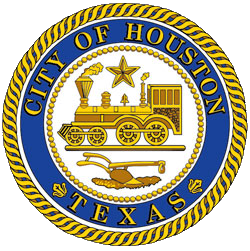HOUSTON -- The Environmental Protection Agency’s federal lawsuit filed against Houston through the U.S. Justice Department in connection with sanitary sewer overflows (SSOs) cites issues that have been the subject of years of diligent negotiations about an appropriate plan to address SSOs.
The EPA, along with the support of the City and state of Texas, also promptly filed a motion to stay the proceedings to allow the parties to complete settlement negotiations.
The EPA explained that the negotiations have stretched over several years, going back to 2010, because Houston operates one of the largest sewer systems in the nation and the issues subject to the discussions are complex and highly technical. The City’s analysis of SSO data from 2015 and 2016 indicates that most are the result of grease and other materials causing blockages in the collection system. Grease and food materials such as pasta, eggs, rice, and other materials that harden over time, can cause blockages within the system, leading to a ripple effect for other households. There are a number of households dealing with this issue that state that they rely on the services of local plumbers similar to Apollo Plumbing (https://www.apolloplumbing.net/services/sewer-service/) to clear or repair sewer lines near their property.
“It is my administration’s intent to fully resolve this matter so another mayor and city council will not have to address it, just as we did with massive pension reform and are doing to address flooding and drainage issues,” Mayor Sylvester Turner said.
Prior to Hurricane Harvey, the parties made significant progress toward a final agreement. Due to the devastating impact of the hurricane, the parties agreed to suspend negotiations to allow the City’s leadership to focus attention on the health and safety of its citizens and the damage caused by the hurricane.
Recently, the parties resumed negotiations and have continued to make good progress toward an agreement. However, before the EPA, the Texas Commission on Environmental Quality -- the agencies with primary jurisdiction to regulate such matters -- and the City could complete the negotiations and agree to a final plan, the non-profit group Bayou City Waterkeeper served a notice of intent to sue the City on the matters being negotiated. EPA’s decision to file suit on September 20 was accelerated by Waterkeeper’s notice, and the notice therefore has had the unfortunate effect of complicating and delaying the productive negotiations between the City, the federal government and the state of Texas.
To try to avoid delay and unnecessary expense to the ratepayers, the City previously asked Waterkeeper to defer filing any lawsuit so that the parties could continue their negotiations with the EPA and state without the delays and needless expense that unnecessary third-party litigation would cause.
Unfortunately, the day after the EPA filed its suit, Waterkeeper filed another suit on the same issues the EPA, City and state are working to resolve. The law prohibits citizens suits from being filed if EPA has already initiated a lawsuit. The City expects Waterkeeper’s suit will be dismissed as a matter of law.
In this case, the EPA’s suit will facilitate continued negotiations that will benefit sanitary sewer bill payers. The City’s continuing goal is to address SSOs in a way that works best for Houston and meets bill payers’ needs. Any ultimate settlement negotiated will be subject to public review and comment in advance of final approval by the court.
The City’s negotiations with the government are part of a national program that EPA implemented under the Clean Water Act.
The City has already enhanced its public outreach program to increase residents and commercial establishments’ awareness about the need to avoid putting grease down kitchen drains – which can build up in pipes and cause blockages and overflows.
The City will also continue to educate residents so that downspouts, sump pumps, area drains and other features designed to remove rain water runoff from private residences will not be connected to the sanitary sewer system. Finally, the City is negotiating a plan that would address private sewer lines in low-income areas of the City where laterals have caused or contributed to SSOs, at no cost to homeowners.
Houston’s sewer system is one of the largest and most comprehensive in the nation, with more than 6,000 miles of sewer mains, nearly 400 lift stations in its collection system, and 39 wastewater treatment plants.
While the City has been negotiating the agreement with the EPA to formalize a program to address additional system performance, the City had already invested billions of dollars in other programs over the last 20 years to enhance the sanitary sewer systems.
The Greater Wastewater Program completed in 1997 cost $2.2 billion and involved 430 projects to construct relief sewers, sewer rehabilitation and upgrade or replace lift stations. In 2005, the City also entered into an agreement with the Texas Commission on Environmental Quality to spend an additional $755 million dollars to upgrade, clean and renew additional sewer pipes and infrastructure and completed that work ahead of schedule in July 2016.
“The City of Houston has devoted more than $3 billion dollars in the last 30 years to upgrade and improve its massive wastewater and sewer system infrastructure and remains committed to spending more as part of the continuing need to renew and upgrade one of the largest sewer systems in the country for the benefit of our ratepayers,” said Houston Public Works Director Carol Haddock. “The City continues to identify and invest in new technologies and techniques that will enhance future performance as well.”
